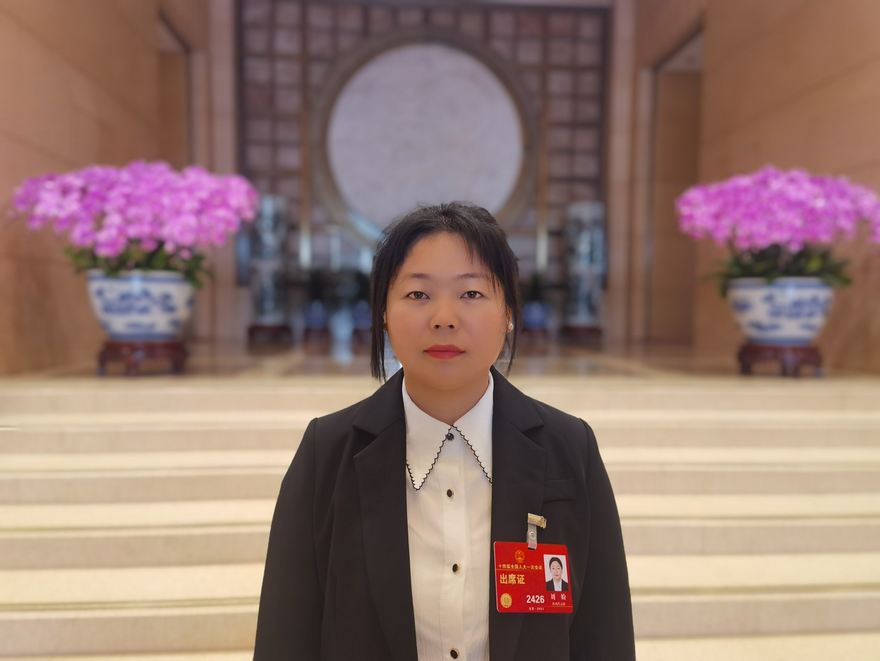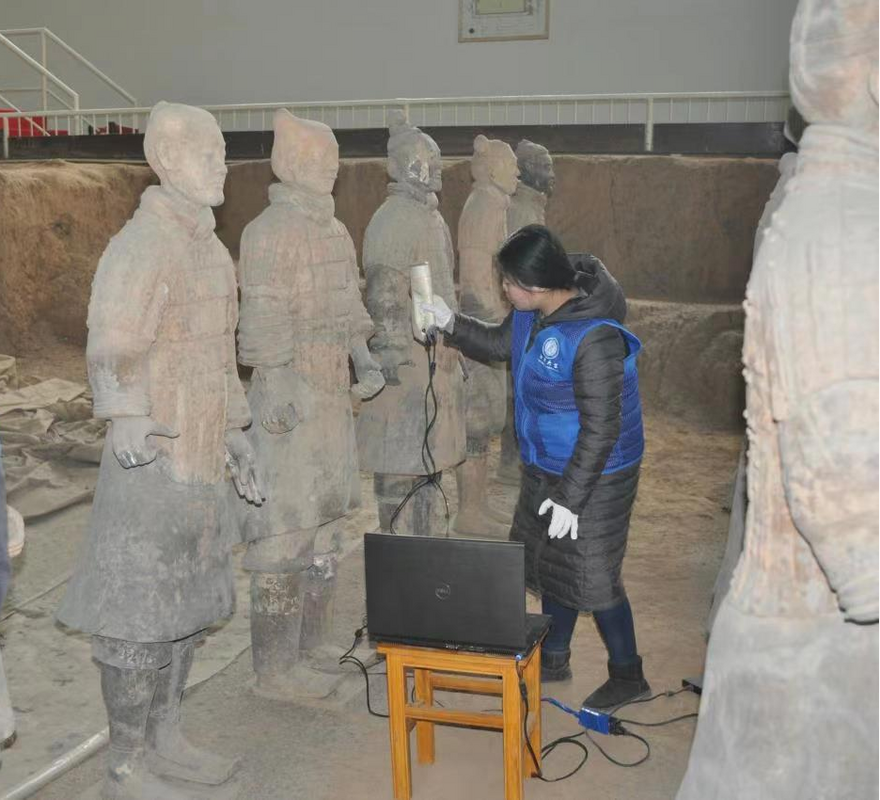How can we train more artisans for the industries? How can we dispel existing prejudices regarding vocational education? These are just some of the questions that Liu Pan, a girl born in the 90s in northern Shaanxi, spends her time thinking about.
Born in 1992, Liu Pan, a new deputy to the National People's Congress (NPC), can be labeled in more than one way: a candidate for the Young Science and Technology Corps in Weinan City, a May Day Labor Medal winner in Shaanxi Province, a National May Day Labor Medal holder, a senior engineer in reverse engineering and digital design, and a senior trainer in reverse engineering. She spent nearly 10 years growing from an ordinary employee to a digital design professional in the company where she now works.

Liu Pan, NPC Deputy
Standing on the podium, she is Miss Liu, a venerable expert. As a front-line technician, she enjoys the admiration of all her colleagues.

Liu Pan is scanning the data of terracotta warriors and horses
After graduating from vocational schools, it is usual for technical personnel to face difficulties in gaining desirable remuneration, social recognition, and getting promotions in spite of the fact that manufacturing companies are in a serious shortage of skilled, high-level workers, technicians, and other highly skilled personnel. According to Liu, neither the quantity nor quality of skilled workers is capable of meeting the needs of companies and the need for building a country strong in manufacturing and modern service industries. In this connection, she has suggested building a more enabling social environment for technical personnel to develop their skills and capabilities and to shape a better pipeline to cultivate, select, evaluate, and stimulate technical personnel. Doing so would motivate a large part of the workforce to seek technical jobs and build a knowledge-based, skilled, and innovation-minded labor force for China's high-quality development.
Copyright ©1997- by CRI Online All rights reserved